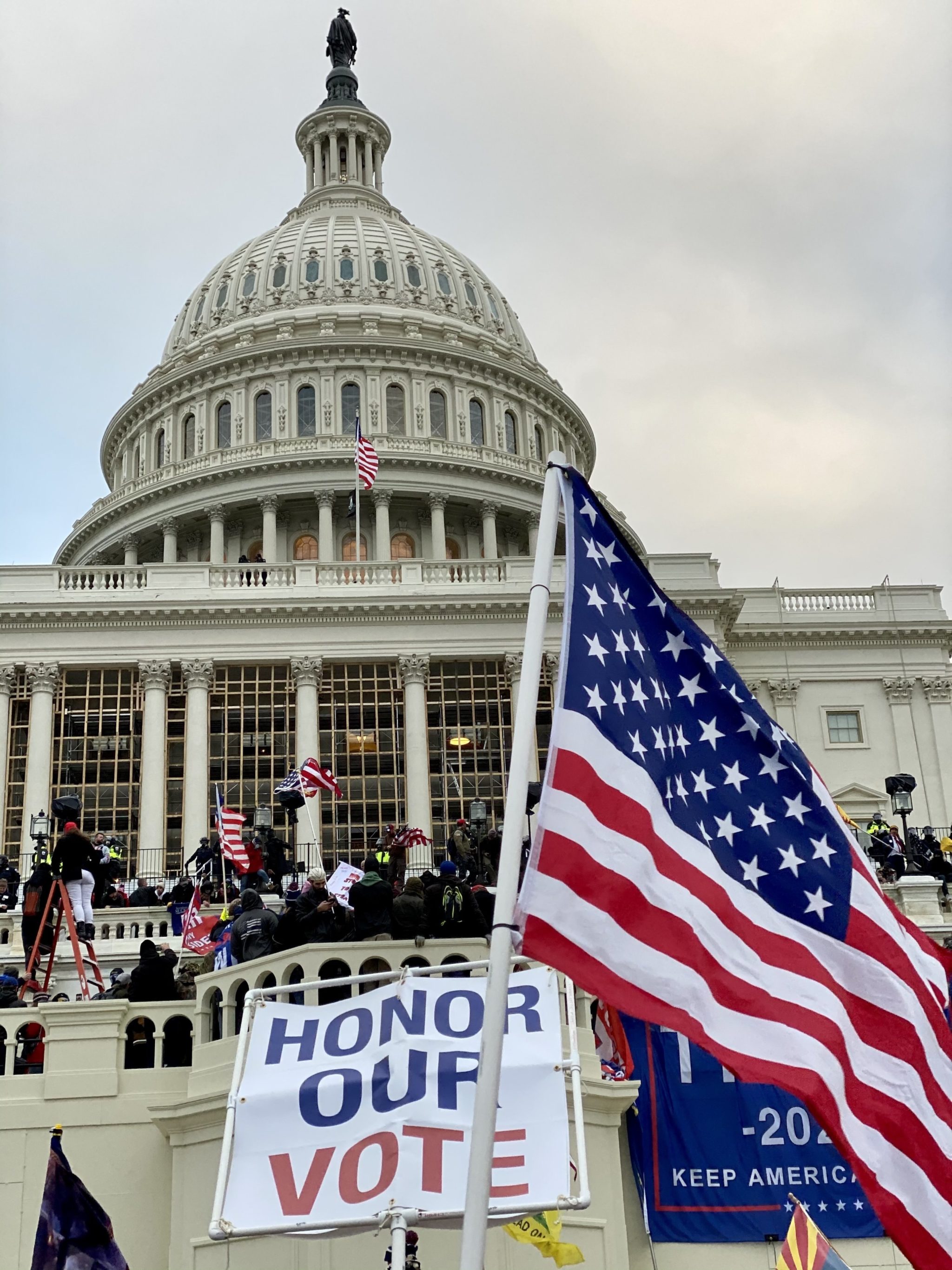Days before Trump fans stormed the Capitol, they bantered online about storming the Capitol. During his speech at the Ellipse yesterday, Donald Trump said “I know that everyone here will soon be marching over to the Capitol building.” After they invaded the Capitol, Trump praised them.
Naturally, people on the right are beginning to blame Antifa. The rioters “were masquerading as Trump supporters and, in fact, were members of the violent terrorist group antifa,” US Representative Matt Gaetz said on the House floor Wednesday night. His fantasy was fueled by a Washington Times story about how one company’s facial recognition software had purportedly identified antifa people among the rioters. His fellow Republican representative Mo Brooks, citing the same article, tweeted a thread of risible “evidence” that evening. (The Washington Times story has now disappeared after the company in question, XRVision, said the paper was wrong and demanded a retraction. )
Fox News’s Laura Ingraham cited the dumbass theory. Brit Hume, whom Fox News recently signed to a multi-year deal, got in on the act. Sinclair Broadcast Group cited it, and so did Rush Limbaugh.
Do not be surprised if we learn in the days ahead that the Trump rioters were infiltrated by leftist extremists. Note: this is not to excuse any of them.
— Brit Hume (@brithume) January 7, 2021
Even TheDonald.win, the Trump-fan forum where people shared maps of the US Capitol tunnel system earlier this week, is frothing with this new conspiracy theory. You may have seen photos of alt-right bonehead Tim “Baked Alaska” Gionet and QAnon fixture Jake Angeli in the hallowed halls of US democracy Wednesday, or read the New York Times interview with self-identified white nationalist Richard Barnett, who posed for photos at Nancy Pelosi’s desk. I spent the day among Trump supporters Wednesday, and if there were lefty activists among them, their tradecraft was impeccable. But since there’s no legal entity named Antifa with a spokesperson reporters can call up, there’s enough oxygen for demagogues like Goetz and Brooks to treat this nitwit theory like an interesting possibility.
So now that this theory has been thoroughly debunked we can expect it to disappear, right?
Sure, except that a similar easily disproven lie—that Trump actually won the election—is believed by millions of Americans. The conspiracy theories Trump cited in his phone call with Georgia Secretary of State Brad Raffensperger are easily debunked; and yet thousands of his supporters stormed the Capitol Wednesday to try to force Congress to act on them.
For years, mainstream news organizations have thought they could fact-check their way out of Americans’ increasing epistemic closure. Surely when confronted by the indisputable facts, the thinking goes, the scales will fall from peoples’ eyes, and misinformation will fizzle. Instead, it turns out that even loyal Fox News viewers will shun the venue where they’ve feasted on lies and half-truths when reality intrudes.
The truth is, the reality-based community in the US has no way to stop the Antifa lie. Like the stolen-election lie, it will grow and fester and become subsumed by the QAnon conspiracy theory until it becomes another facet of its theology. The Washington Times may have removed its story, but the Antifa lie will continue to light up far-right media and niche social media services like Parler. Four years ago, many Washingtonians were shocked that nearly half of Trump voters believed an obvious lie about a Cleveland Park pizza restaurant. Surely the fallout from when a gunman drove to DC to “investigate” the nitwit Pizzagate conspiracy theory would end the madness?
Ha. Ha ha ha ha. We’ve learned over the last four years that the mainstream media is uniquely powerless to combat these crackpot theories. They’ll fade only when they lose their juice to the people who spread them. As more Americans express revulsion about Trump fans storming the Capitol and the consequences for Trump grow more severe, the lie that Antifa was actually responsible will grow far more useful.
















